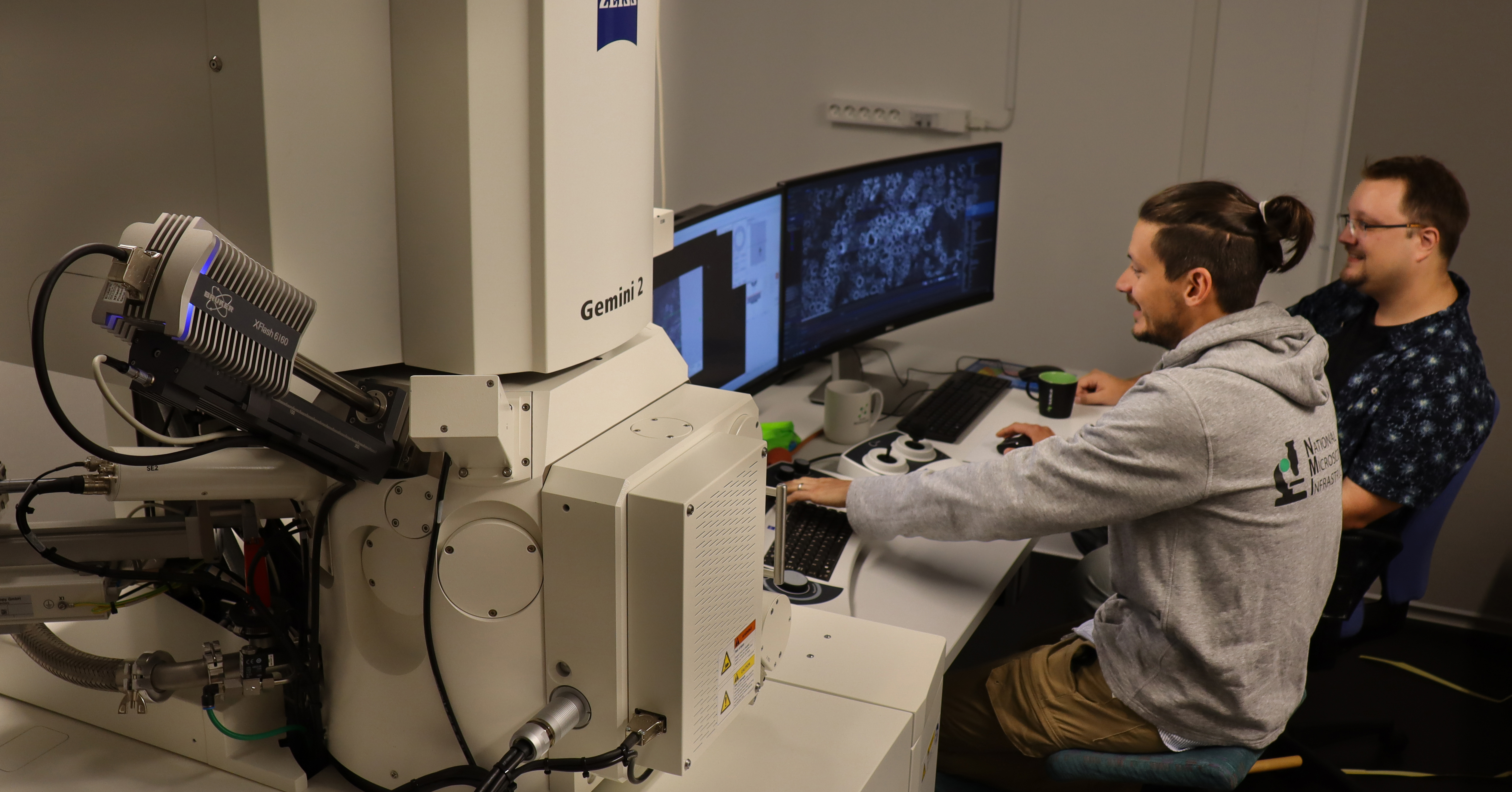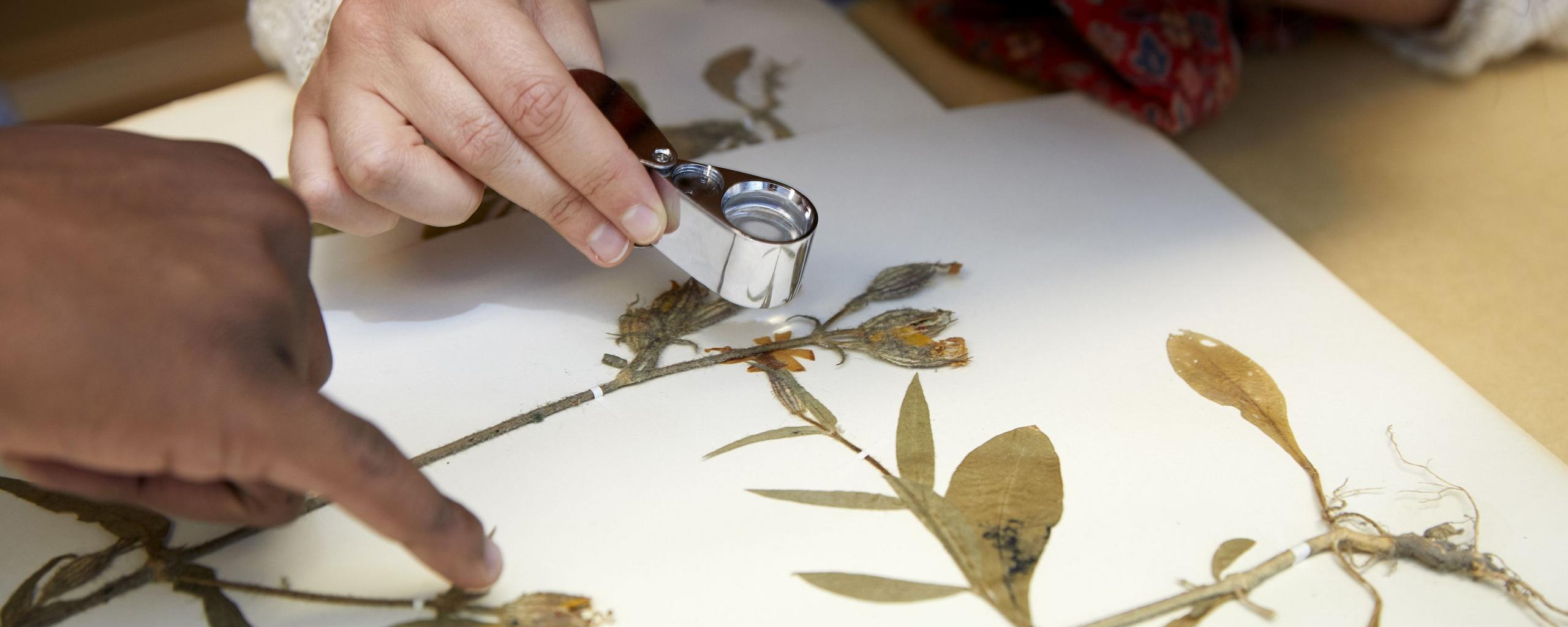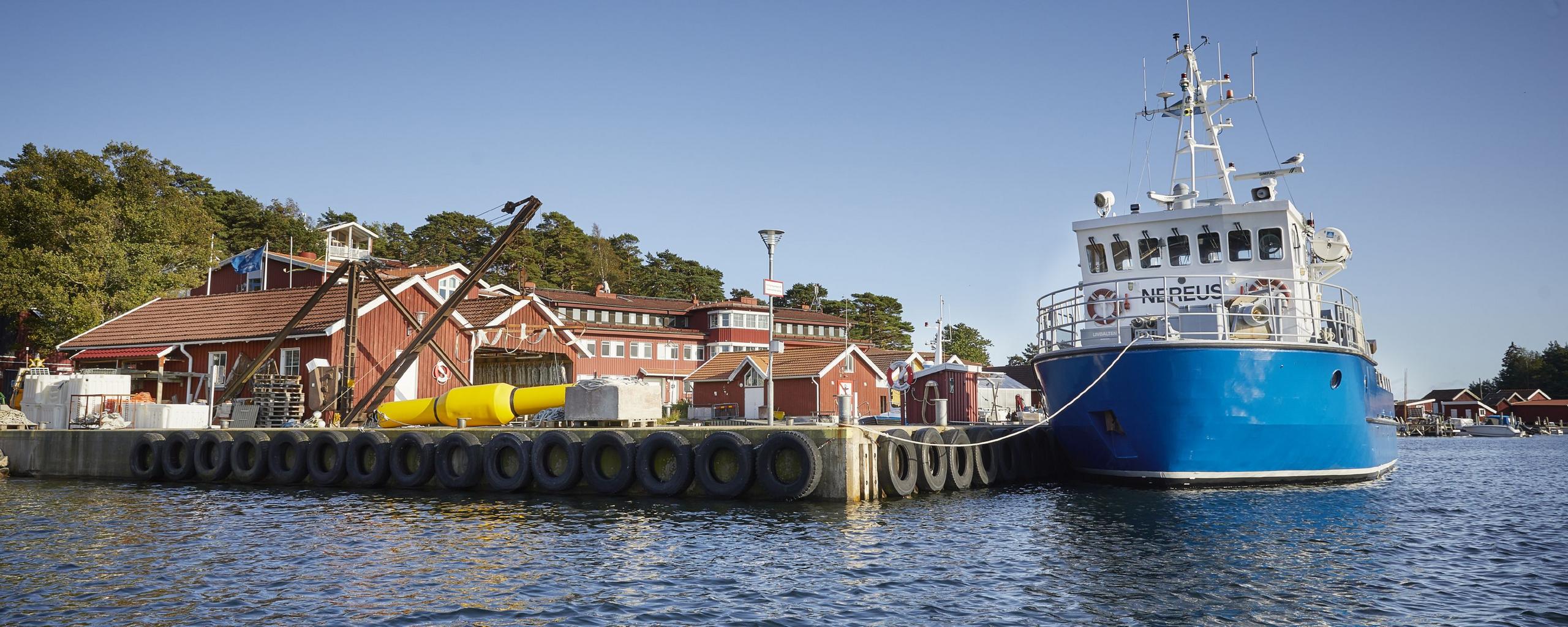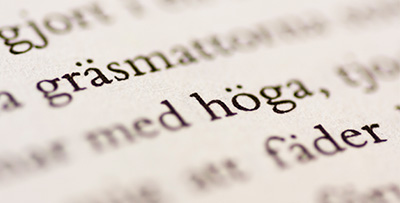You are here :
Research Infrastructure: University of Gothenburg
-
Sahlgrenska Academy Core Facilities
Core Facilities is an open-access Life Science research infrastructure with some of the most advanced facilities, instrumentation, techniques, and competence available to ensure consistent, high-quality research support for all researchers.
• Biobank Core Facility
National sample service coordination and regulatory support
• Bioinformatics and Data Centre
Sequence, Analyse, Visualize, and Integrate ‘Big data’
• Centre for Cellular Imaging - State-of-the art Multimodal Imaging
• Experimental Biomedicine - Multi-functional
Research infrastructure for animal-based research and education
• Mammalian Protein Expression
Complex recombinant proteins and monoclonal antibodies
• OligoNova Hub - Design & Synthesis of Therapeutic Oligonucleotides
• Proteomics Core Facility - Mass Spectrometry-based Protein Analysis
Keywords:
• Core Facilities • State-of-the-art • Research support • Biobank • Sample quality • Bioinformatics • NGS • Imaging • Electron microscopy • Animal care • Laboratory Animal Science • Proteomics • Oligonucleotides • Protein Expression • Life Science
Key Contact:
Head of Core Facilities:
Elisabet Carlsohn
Head of Core Facilities:
Marie Hornfelt
Head of Administration :
Carina Johansson
Management Coordinator:
Niklas Jern
https://www.gu.se/en/core-facilities
-
The Evaluation Through Follow-Up
The Evaluation Through Follow-up (UGU) is a large cohort-sequential database which is used for evaluation and research about schools and education in Sweden. UGU is (one of) the largest research databases in Sweden in the field of education. UGU is part of the national evaluation of the school system, and used in social science and social research. The database
contains nationally representative samples of students from ten cohorts, born between 1948 and 2004. The longitudinal design of the UGU allows the individuals from these cohorts to
follow through the education system. The design makes it possible to both follow students through the education system and to compare cohorts from different times. The database is
a collection of information from surveys and tests. In addition, school administrative and register data such as school, class, study choices, and grades are incorporated into the database.
Keywords:
• Longitudinal database • Effects of education • Cognitive ability • School achievement • Mental health • Non-cognitive ability • Gender differences • School systems • Motivation • Self-beliefs of skills
Key Contact:
Department of Education and Special Education :
Alli Klapp
ugu@ped.gu.se
-
Gothenburg Research Infrastructure in Digital Humanities
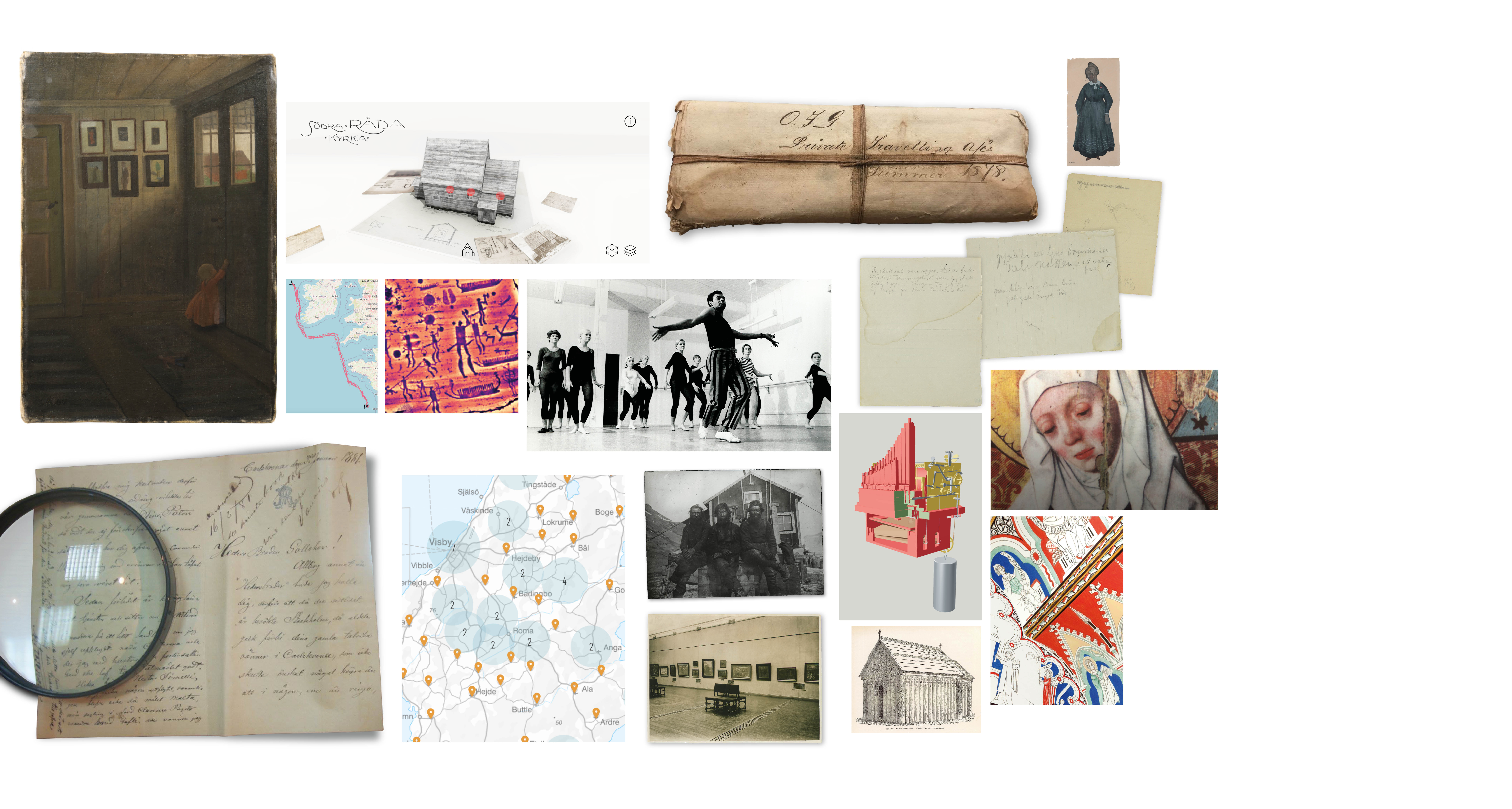
Gothenburg Research Infrastructure in Digital Humanities (GRIDH) is a research node and infrastructure at the Faculty of Humanities that offers methodological support and combines humanities research skills with expertise in digital technology and method development. We have excellence in interdisciplinary project design, information modeling, data management, text and image analysis, spatiotemporal data visualization, numerical methods, AI/machine learning, VR/AR simulation, 3D visualizations and modeling of historical environments, and critical digital humanities.
Keywords:
• Digital Humanities • Digital Cultural Heritage • Simulation • Dynamic Mapping • Interdisciplinary Practice • Visualization
Key Contact:
Department of Literature, History of Ideas, and Religion:
Cecilia Lindhé
gridh@gu.se
https://www.gu.se/en/digital-humanities
-
Herbarium GB
Herbarium GB is a common research infrastructure at the University of Gothenburg, located at the Department of Biological and Environmental Sciences. It has a large collection of dried plants, fungi, algae etc. for comparative and evolutionary studies. The collections amount to approximately 1.1 million specimens. Nearly 750,000 of these are vascular plants, whereas the remaining 350,000 specimens belong to bryophytes, algae, fungi, lichens, and slime molds. The collections reflect to a large extent the research that is currently carried out, or
has been carried out, at the Department of Biological and Environmental Sciences.
Keywords:
• South America • Flora of Ecuador • Corticiaceae of North Europe • Norden • Sweden • Heliconiaceae • Calceolariaceae • Caryophyllaceae • Cyclanthaceae • Marantaceae
• Rubiaceae
Key Contact:
Herbarium Manager/Supervisor :
Claes Gustafsson
herbarium@bioenv.gu.se
https://www.gu.se/en/biological-environmental-sciences/herbarium-gb
-
KvinnSam National Resource Library for Gender Studies
KvinnSam - National Resource Library for Gender Studies was originally founded in 1958 mainly as a women’s archive and has grown into a research infrastructure specializing in women’s history and gender studies. KvinnSam is staffed by university librarians, archivist, and research coordinator, all with discipline-specific competence.
KvinnSam maintains the bibliographic database KVINNSAM, the most comprehensive database on women’s history and gender studies in Scandinavia, consisting of more than 160000 references.
KvinnSams archival collections focus on people and organizations who have made an impact on the Swedish women’s history and gender research field – from the Swedish suffrage movement at the beginning of the 20th century until today.
Keywords:
• Women’s History • Gender Studies • Feminist Studies • Equality • Library • Archive • Database • Reference Service
Key Contact:
Director :
Linda Börjesson
Deputy Director:
Annalena Bergquist
http://www.ub.gu.se/kvinn/
-
The Marine Infrastructure at the University of Gothenburg
The Marine Infrastructure includes a large (49 m) research vessel (R/V Skagerak), two marine research stations (Tjärnö Marine Laboratory and Kristineberg Research Station), two smaller vessels, several small boats, one large AUV and three small ROVs. R/V Skagerak operates coastal and offshore, has a crew of 14, and is well-equipped with advanced instrumentation for research and education. Both research stations are situated in pristine coastal environments (0-250 m) have flow-through saltwater systems and temperature controlled laboratories, large and well-equipped student and research laboratories, mesocosm facilities and flow tanks. Hostels and restaurants facilitate up to 70 (Tjärnö), and 40 (Kristineberg) students or guest researchers.
Keywords:
• Research Infrastructure • Research Vessels • Hydroacoustic Instrumentation • Autonomous and Remotely Operated Underwater Vessels • Modern Sampling and Experimental Facilities • Field Stations • Analytical Instrumentation • Temperature-Controlled Laboratories • On-line Filtered Surface and Deep Seawater • Lodging Facilities
Key Contact:
Head of the Department of Marine Sciences:
Stefan Hulth
Tjärnö Marine Laboratory, Station Manager:
Kerstin Johannesso
R/V Skagerak, Station Manager:
Louise Newman
Kristineberg Center for Marine Research and Innovation Station Manager:
Fredrik Gröndahl
https://www.gu.se/en/marina-vetenskaper/about-us/marine-infrastructure
-
The Quality of Government (QoG) Institute

The Quality of Government (QoG) Institute, founded in 2004 by Professors Bo Rothstein and Sören Holmberg, conducts research on the causes and consequences of QoG – that is, impartial, uncorrupted, and competent government institutions. The QoG Institute compiles comparative data on QoG from a number of freely available sources, and also generates original data. The Institute’s six datasets – the QoG Standard, the QoG Basic, the QoG OECD, the QoG Expert Survey, the EU Regional Data and the QoG EQI Regional Data –are all freely available on our webpage, along with codebooks and tools for visualizing data in communication and teaching. The institute’s award-winning data infrastructure has reached a global audience and a stellar reputation.
Keywords:
• Quality of Government • Impartiality • Corruption • Meritocratic Bureaucracy • Gender Equality • Satisfaction with Democracy • Universal Education • Whistleblowers
• Taxation • Public Goods • Collective Action Problem
Key Contact:
Director:
Marina Nistotskaya
infoqog@pol.gu.se
www.gu.se/qog
-
Skogaryd Research Catchment (SRC)
The Skogaryd Research Catchment (SRC) aims at the quantification of greenhouse gas (GHG) balances at the landscape scale, including land-atmosphere, land-water, and water-atmosphere exchange, promoting integrative and cross-habitat-boundary research. The SRC is located 100 km north of Gothenburg and is a mix of different ecosystems: mires, mature and young forests, lakes, and streams. Skogaryd is part of SITES (Swedish Infrastructure for Ecosystem Science) and ICOS-Sweden (Integrated Carbon Observation System) and is open to all researchers, regardless of affiliation. The base measurement program at SRC includes GHG flux measurements from terrestrial and limnic ecosystem, using a range of different methodologies, as well as stream flow and chemical analyses. The SRC promotes biogeochemical ecological, ecophysiological, and within-canopy chemical research. Data collected at Skogaryd is freely available and can be used by anyone as long as the data is cited as specified in the SITES data policy.
Keywords:
• Greenhouse Gas • Water Chemistry • Biogeochemistry • Ecophysiology • Forest Management • Ecosystem Restoration • Peatland • Wetlands • Ecosystem Science • Carbon Balance • Global Change
Key Contact:
Station Manager:
Tobias Rütting
Principal Research Engineer:
Per Weslieng
gvc@gvc.gu.se
www.gu.se/en/earth-sciences/skogaryd-research-catchment-0
-
Språkbanken Text
Språkbanken Text is a research unit and forms part of Nationella språkbanken, a national e-infrastructure supporting current and future research conducted on language data. We provide freely available modern and historical language research data, primarily for Swedish, in a format suitable for research in, e.g., language technology, artificial intelligence, linguistics, digital humanities and social sciences. We develop language technology-based analysis tools which enrich our data collection and enable sophisticated text search applications, to support new kinds of research. Among our popular research tools we find Korp, providing advanced search functions over the totality of our data collection, and Karp, for browsing and search in our lexicons and other formally structured linguistic databases, Sparv for rich language technology analyses of texts, and many other tools. We collaborate with Swedish and international research groups, memory and cultural-heritage institutions, schools and enterprises. Established as early as 1975, we are one of the world’s oldest language-technology R&D units.
Keywords:
• Language Technology • LT • Artificial intelligence • AI • Linguistics • Language • Language Data • Research Data • Research Tools • Text Analysis • Digital Humanities and Social Sciences • Swedish • R&D Unit • Nationella Språkbanken • Swe-Clarin
Key Contact:
Director:
Markus Forsberg
sb-info@svenska.gu.se
https://spraakbanken.gu.se/en
https://språkbanken.se/sprakbankeninenglish.html
-
Swedish National Data Service (SND)

Swedish National Data Service (SND) is a national research data infrastructure designed to assist researchers in preserving, maintaining, and disseminating research data in a secure and sustainable manner. The goal is to make access to research data “as open as possible, as closed as necessary”. The SND search function makes it easy to find, use, and cite research data from a variety of scientific fields. SND is present throughout the Swedish research ecology and is run by a consortium of nine universities. Together with an extensive network of around 40 higher education institutions and other research organisations, SND strives to create a distributed large-scale system of certified research data repositories.
Keywords:
• Data Discovery • Data Sharing • E-infrastructure • FAIR Data • Open Access • Open Data • Open Science • RDM • Research Data • Research Data Catalogue • Research Data Infrastructure • Research Data Management • Research Data Repository • Research Infrastructure
Key Contact:
Director:
Max Petzold
Deputy Director & Collaboration Manager:
Elisabeth Strandhagen
snd@gu.se
https://snd.gu.se/en
-
The Swedish NMR Centre (SNC)
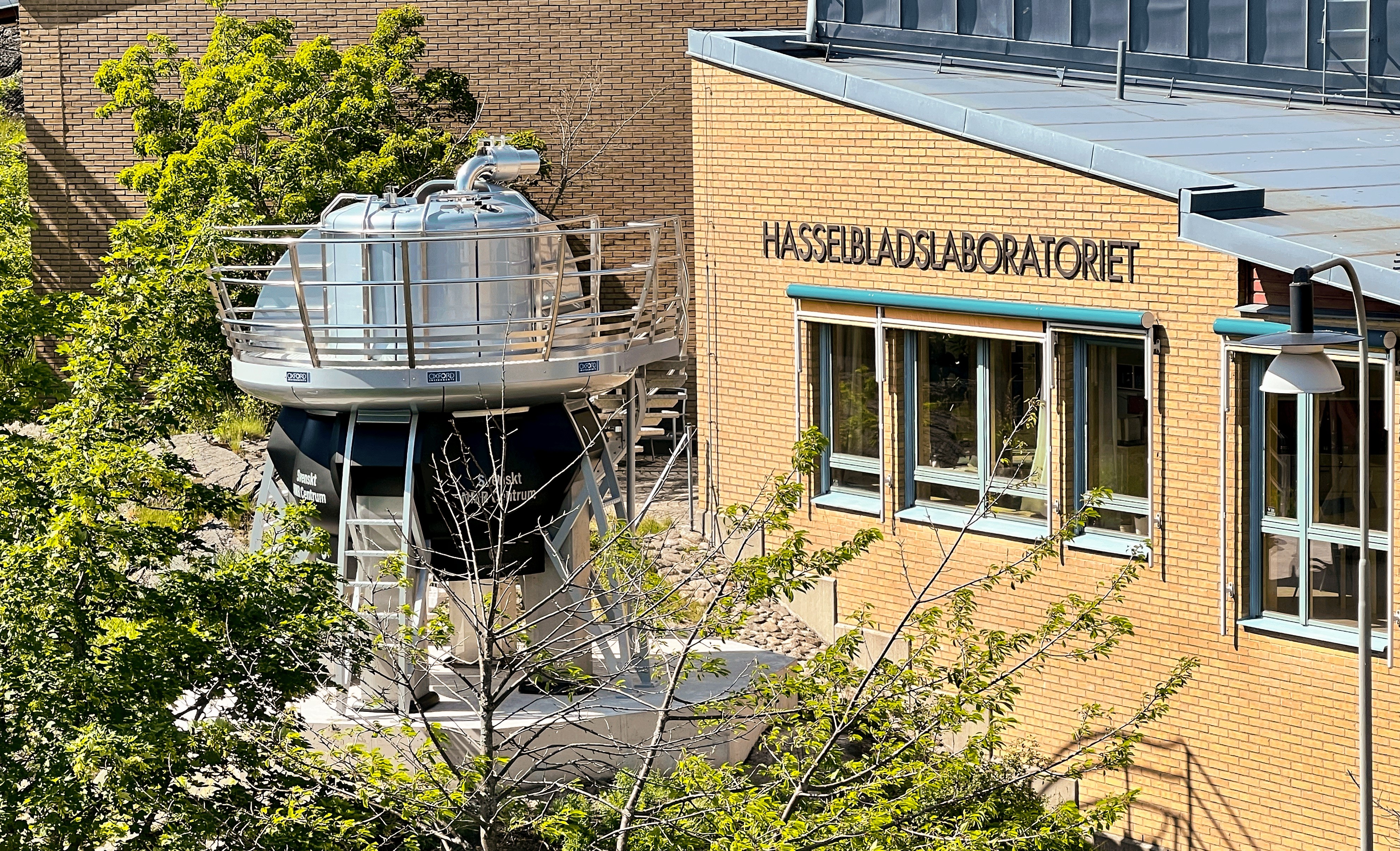
The Swedish NMR Centre (SNC) is a National and International infrastructure offering access to one of the best NMR labs in Europe. At present, we offer access to eight different spectrometers, ranging from a 400 MHz DNP system unique to Northern Europe to a 900 MHz spectrometer catering for the most demanding applications in solution-state NMR. The palette of spectrometers covers a wide range of research areas, ranging from structural biology of macromolecules to large-scale metabolomics projects, target-drug interaction studies and material science on solid samples.
Keywords:
• Solution NMR • DNP-NMR • Structural Biology • Metabolomics • Non-uniform Sampling • Drug-development • In-cell NMR • Microimaging • Molecular Interaction • Relaxation • Life Science • Materials Science
Key Contact:
Director:
B. Göran Karlsson
info@nmr.gu.se
https://www.gu.se/en/nmr
-
Swedish Rock Art Research Archives (SHFA)
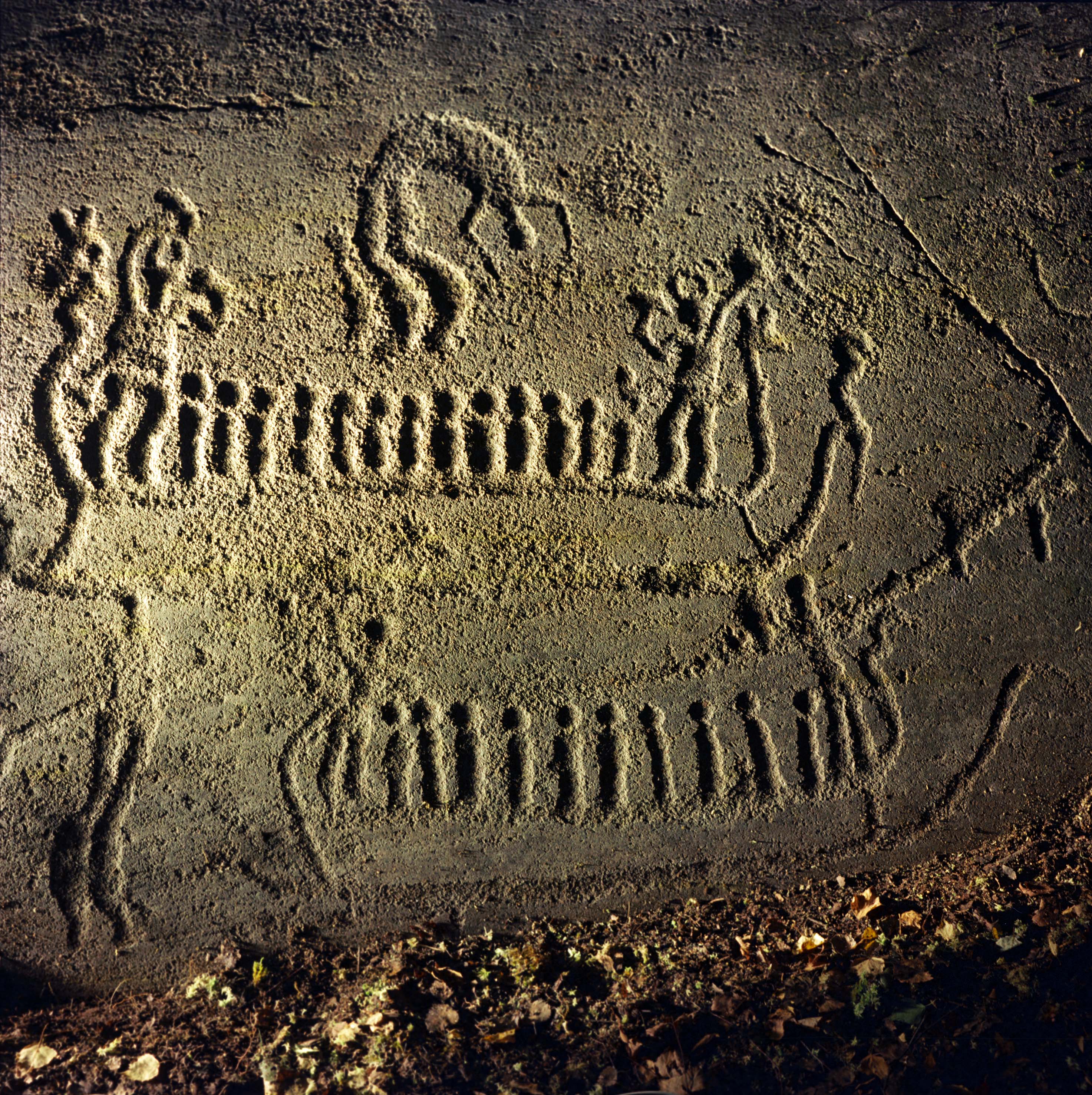
The Swedish Rock Art Research Archive (SHFA) digitizes, archives and publishes prehistoric rock art images for researchers, students, and the general public. SHFA’s database includes more than 27,000 documentations of rock carvings and paintings, primarily from Sweden including the UNESCO world heritage area “Rock art in Tanum”, but also from Denmark, Norway, Italy and Spain. The database includes both analogue documentation, interactive 3D models, and new visualisations. The experts at SHFA develop new digital documentation of rock art such as 3D, AI & VR. SHFA’s online database has reached a new milestone with more than 2 million visitors. SHFA’s material is available at the international infrastructure ARIADNE+ driven by EU in collaboration with CDH and SND. Researchers connected to the SHFA currently drive four international research projects funded by VR and RJ.
Keywords:
• Rock art • Petroglyphs • Pictograms • Research Infrastructure • Bronze Age • Neolithic • 3D • Visualization • Artificial Intelligence • Data Driven Science • Databases • World Heritage
• UNESCO
Key Contact:
Director:
Johan Ling
https://shfa.dh.gu.se/
-
Varieties of Democracy (V-Dem)
Varieties of Democracy (V-Dem) is a unique approach to conceptualizing and measuring democracy. We provide a multidimensional and disaggregated dataset that reflects the
complexity of the concept of democracy as a system of rule that goes beyond the simple presence of elections. The V-Dem project distinguishes between five high-level principles of
democracy: electoral, liberal, participatory, deliberative, and egalitarian. V-Dem collects data on 600 indicators and supplies over 50 indices related to the five main types of democracy from 1789-today. The data is collected annually and with the assistance of more than 3,700 Country Experts, the resulting database is the largest of its kind with some 30 million observations.
Keywords:
• Democracy • Data Collection • Expert Coding • Research Infrastructure • Democratization • Autocratization
Key Contact:
Director of the V-Dem Institute:
Staffan I. Lindberg
contact@v-dem.net
https://www.v-dem.net/



